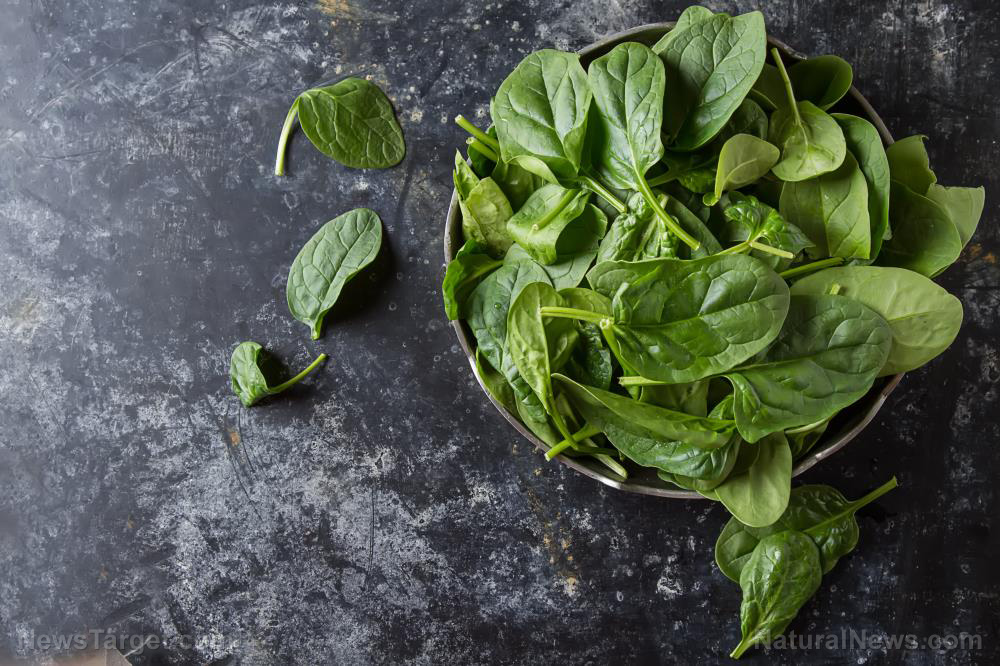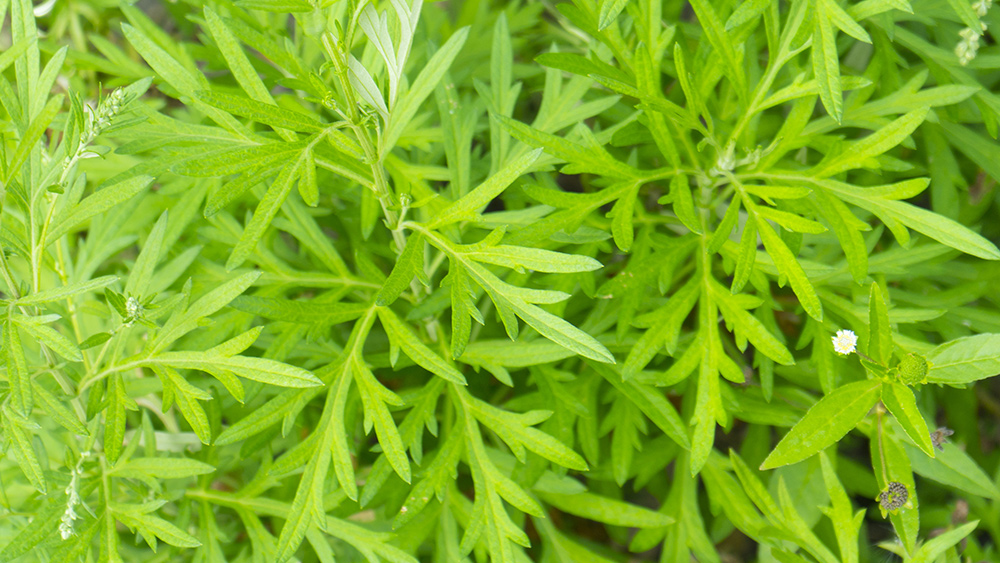Strong to the finish: Spinach supplements can enhance athletic performance
03/17/2020 / By Evangelyn Rodriguez

Supplements that contain an anabolic compound from spinach should be in the list of prohibited substances in sports, according to a recent study. Researchers from Australia, Germany and Italy looked at the effects of ecdysterone, a naturally occurring plant steroid, in young men undergoing strength training and found that it can boost physical performance and increase muscle mass. This compound has been dubbed the “Russian secret” in the 1980s due to heavy suspicions that Russian athletes were using it as a performance-boosting supplement.
How anabolic agents work
Substances that fall under the category of anabolic steroidal agents or anabolic-androgenic steroids are either synthetic or naturally occurring variations of the male sex hormone, testosterone. Often referred to as simply steroids, these drugs are designed to treat hormonal issues, such as delayed puberty. Steroids are also used to address muscle loss brought about by serious conditions like AIDS or cancer.
However, steroids rose to notoriety when athletes and weight lifters began misusing them. The anabolic and androgenic properties of steroids allow them to promote not only male sex characteristics, but also anabolism, a bodily process that allows the growth of new cells. These activities result in enhanced athletic performance and increased muscle growth and strength.
Ecdysterone is the main compound in spinach extract and is classified as a phytosteroid. In plants, phytosteroids serve as structural components of cell membranes, as insect deterrents and as growth hormones. Many plant steroids, such as those derived from boswellia, fenugreek and licorice, are valued in traditional medicine for their anti-inflammatory activities and are used to treat conditions like lung diseases, allergic asthma and rheumatoid arthritis.
According to previous studies in animals, ecdysterone from spinach has many beneficial effects, most notably increasing the synthesis of protein in skeletal muscles. The compound has also proven itself to be more potent than anabolic agents currently banned in sports, such as the synthetic steroid metandienone. (Related: Pump up your body with the Popeye vegetable – spinach.)
Ecdysterone from spinach can boost athletic performance
Recent studies suggest that the anabolic effect of ecdysterone is influenced by its binding to estrogen receptors. But while multiple studies have investigated the effects of this plant steroid, those that involved humans are very rarely accessible.
For their study, which appeared in the journal Archives of Toxicology, the researchers recruited 46 young men to participate in an intervention study of strength training that lasted for 10 weeks. They gave the participants ecdysterone-contaning supplements and evaluated their effect on physical performance.
The researchers analyzed blood and urine samples for ecdysterone and biomarkers of performance enhancement, and screened for prohibited performance-enhancing substances to ensure the specificity of the measured effects. They also tested the supplements for anabolic steroid contamination before giving them to the participants.
The researchers reported that those who received ecdysterone showed significantly higher increases in muscle mass. They also observed the same increase in the number and growth of muscle cells (hypertrophy) in cell culture experiments.
With respect to athletic performance, the researchers found that ecdysterone enabled the participants to perform more one-repetition bench presses without increasing biomarkers for liver or kidney toxicity.
Based on these findings, the researchers concluded that ecdysterone from spinach can greatly enhance athletic performance, so its use as a supplement should be prohibited in sports. They propose that ecdysterone be classified under “other anabolic agents,” the use of which is banned in any competition.
Sources include:
PhytoPharmaJournal.com [PDF]
Tagged Under: anabolic steroids, athletic performance, ecdysterone, fitness, functional food, men's health, muscle growth, performance enhancers, physical performance, phytonutrients, phytosteroids, plant steroids, research, spinach, Steroids, supplements, Testosterone, veggie



















